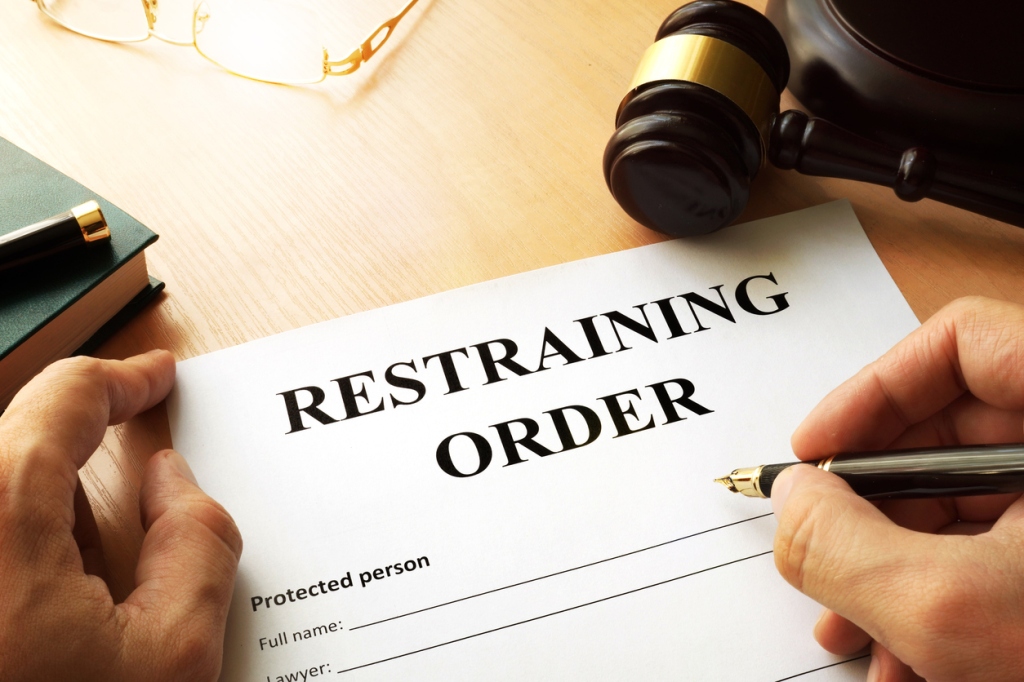
Wisconsin allows for two different types of restraining orders or injunctions: harassment and domestic abuse. An injunction is a court order that orders a party to refrain from committing certain acts or doing certain things. The word restraining order and injunction are interchangeable except that a restraining order is generally granted for a temporary basis until there is a full hearing by the court to determine if an injunction is needed. What is the difference between these two types of restraining orders?
The first type of injunction is for Harassment. The statute has several definitions for “harassment.” First, the statute includes in the definition “striking, shoving, kicking or otherwise subjecting another person to physical contact; engaging in an act that would constitute abuse, sexual assault, or stalking; or attempting or threatening to do the same. This is typically used when the aggressor is not a member of your family. The definition also includes “engaging in a course of conduct or repeatedly committing acts which harass or intimidate another person and which serve no legitimate purpose.” This can be filed against either a member of your family or someone who is not part of your family. A harassment injunction can be effective for up to 4 years and can prohibit the harasser from coming to your home and contacting you in any form. Contact can mean via electronic means (social media, text messages, facetime/zoom, etc.), in person, by telephone or e-mail. Please remember that this list is not an exhaustive list for defining contact.
This type of injunction is typically filed by someone who is being repeatedly contacted or threatened by someone and they have asked that person to stop contacting them. It is important to note that the key difference between a harassment injunction and a domestic violence injunction is who is engaging in the threatening behavior. If the behavior is coming from someone outside of your home and you are not in a relationship or have a familial relationship with them, speak to your attorney about filing a harassment restraining order. If the behavior is coming from someone who lives with you, in a relationship with you, or is a family member, speak to your attorney about filing a domestic abuse restraining order, if appropriate, although a harassment injunction can also be filed against someone in your family or one with whom you have a relationship if they are engaging in harassing behavior only.
For purposes of a domestic abuse injunction, the statute has defined “domestic abuse” as meaning when an adult family member, adult household member, adult caregiver, former or current spouse, former or current dating relationship, an adult with whom the person has a child in common, a sibling or step-parent is intentionally or threatening to inflict physical pain, injury or illness, impair their physical condition, sexually assault, stalk, or damage property. A parent may also file a child abuse restraining order for their child. Please discuss with your attorney your legal options related to filing a domestic abuse restraining order or a child abuse restraining order.
A domestic abuse restraining order is filed by someone who fears for their physical safety. A domestic abuse injunction can last for up to 4 years and can prohibit the abuser from coming back or moving back into the household and contacting you. Contact can mean via electronic means (social media, text messages, facetime/zoom, etc.), in person, by telephone or e-mail. Again, please remember that this list is not an exhaustive list for defining contact.
For both types of restraining orders/injunctions, if the harasser or abuser has access to fire arms and you feel that there is a legitimate threat to your safety, please reach out to an attorney immediately to discuss your legal options for protection. If there are fire arms or weapons involved in your case, the court can order for the weapons to be removed from that person.
If you believe that you are being harassed or you are a victim of domestic abuse, please contact our firm at (414) 258-1644 for a free consultation regarding your restraining order.
–Attorney Margaret Spring